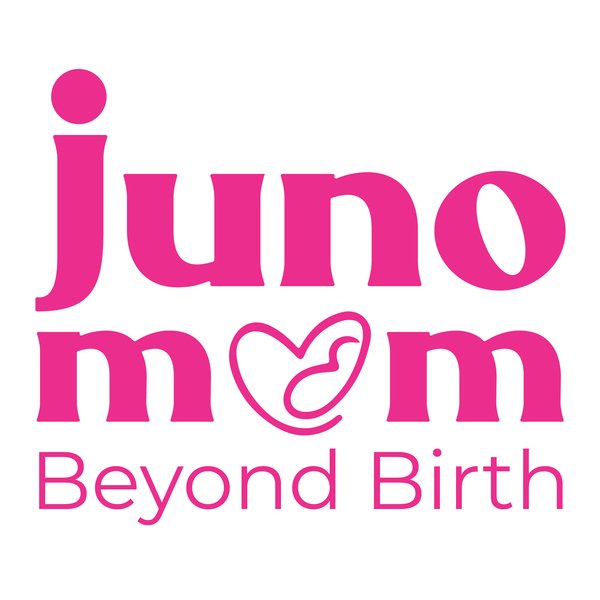Congratulations, mama! You've brought a tiny miracle into the world – now it's time to focus on another miracle: you. The postpartum period, also known as postnatal recovery, can be a whirlwind of emotions, sleep deprivation, and a whole lot of learning for new moms. But amidst the diapers and feedings, prioritising self-care is not a luxury, it's a necessity.
Understanding the Postpartum Period
The postpartum period, also known as the postnatal period, typically refers to the first six weeks after childbirth. This time is crucial for new moms as their bodies undergo significant changes, healing from the birthing process and adjusting to the new demands of motherhood. It’s essential to recognize that self-care during this period is not a luxury but a necessity.

Why Self-Care Matters for New Moms
Simple Yet Powerful Self-Care Strategies for New Moms

Rest and Sleep: The Foundation of Recovery
One of the most significant challenges new moms face is lack of sleep. Newborns have irregular sleep patterns, which can disrupt the mother’s sleep schedule. Prioritising rest is vital for postpartum recovery. Here are some tips:
Create a Comfortable Sleep Environment: Make your bedroom a sanctuary. Use blackout curtains, white noise machines, and comfortable bedding to enhance sleep quality.
Ask & Accept Help: Don’t hesitate to ask for or accept help from family and friends. Having someone else care for the baby, even for an hour, can give you a chance to rest.
Nourish Your Body: Postpartum Nutrition
Your body needs proper nutrition to heal as well as breastfeeding since it uses a lot of energy. Focus on a healthy diet with a variety of food every day.

Nutritious Meals: Incorporate a variety of fruits, vegetables, lean proteins, and whole grains into your diet. Mushrooms for Vitamin D, Spinach, Apples & Bananas for Iron & Fibre and Boiled Eggs for Healthy Fats & Proteins are some options to include in your diet.
Hydration: Drink plenty of water throughout the day. Hydration is key to your recovery. It also helps in case you are facing Postpartum Incontinence or Urinary retention after childbirth.
Gentle Exercise and Movement
While rest is crucial, gentle exercise can also aid in postpartum recovery. Always consult with your healthcare provider before starting any exercise routine:
Walking: In the first few days after delivery start with short walks around the house and gradually increase walking outside your house. Walking is a great way to get fresh air and improve circulation.
Pelvic Floor Exercises: These exercises can help strengthen pelvic muscles and support recovery. Pelvic Floor Exercises such as Kegels also help with issues such as Postpartum Incontinence. Consult your doctor at 6 week postpartum checkup about your healing progress and whether you can begin workout sessions.

Postpartum Yoga: Yoga can help improve flexibility, reduce stress, and promote relaxation. Many postnatal yoga classes focus on gentle stretches and breathing exercises.
Emotional Well-Being: Seeking Support
The emotional rollercoaster during the postpartum period can be intense. Hormonal changes, sleep deprivation, and the demands of caring for a newborn can lead to feelings of anxiety and depression:
Talk About Your Feelings: Sharing your experiences and feelings with loved ones can provide emotional relief. Don’t hesitate to express your needs and concerns.

Join Support Groups: Connecting with other new moms through support groups can provide a sense of community and understanding. Online forums and local meet-ups can be great resources.
Professional Help: If you’re experiencing persistent feelings of sadness, anxiety, or overwhelm, seek help from a mental health professional. Postpartum depression is common and treatable.
Essential Tools: Postpartum Care Kit
Having the right tools can make a significant difference in your postpartum recovery journey. Consider investing in a Postpartum Recovery Essentials Kit like the Juno Mom Postpartum Care Kit. This kit includes:

Maternity Pads & Disposable Underwear for heavy postpartum flow without worrying about the laundry load.
Witch-Hazel Wipes for Moms to reduce inflammation and irritation.
Handheld Portable Bidet is extremely helpful for bathroom visits postpartum whether you had a C-section or Vaginal Delivery.

Abdominal Binder for support & gentle compression to your C-Section stitches and postpartum belly.
Grip Socks with Anti-Skid sole designed specially to maintain your balance and provide warmth against postpartum chills.
Self-care is a Necessity for New Moms
Prioritizing self-care as a new mom is essential for a healthy and happy postpartum recovery. By focusing on rest, nutrition, gentle exercise, emotional support, and using helpful tools like the Juno Mom Postpartum Recovery Essentials Kit, you can navigate this challenging period more smoothly. Embrace this time with patience and kindness towards yourself.
Grab all the Postpartum Essentials from Juno Mom & get postpartum ready!
Explore Juno Mom’s Blogs for more Postpartum care content.


